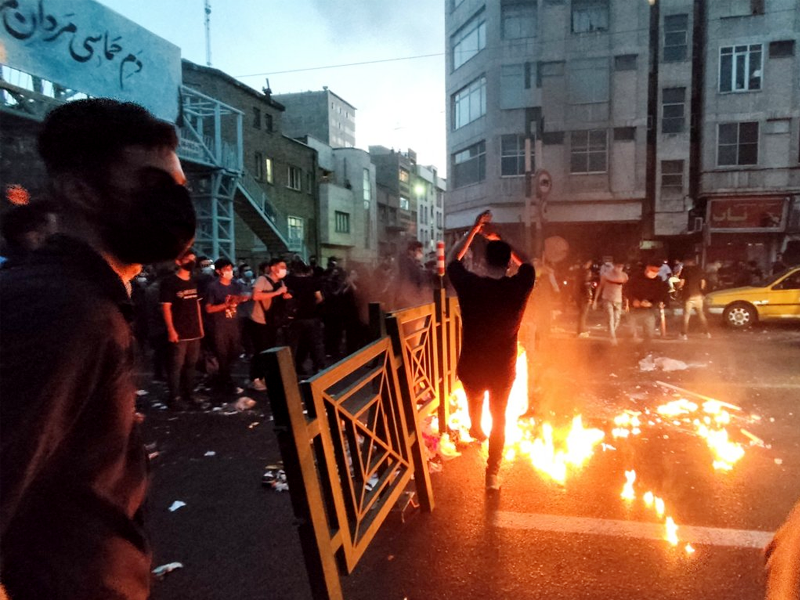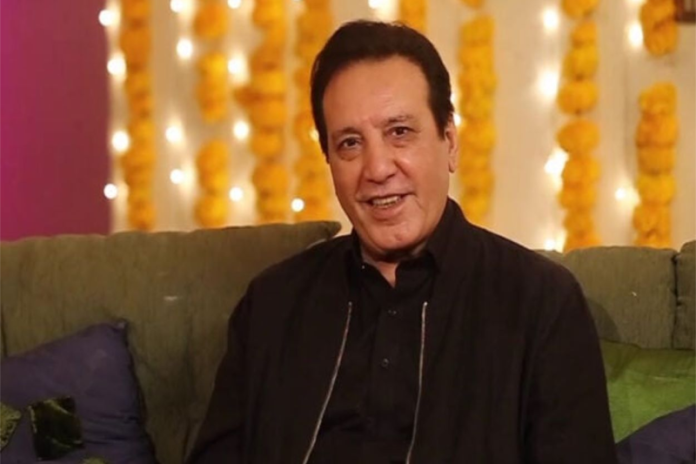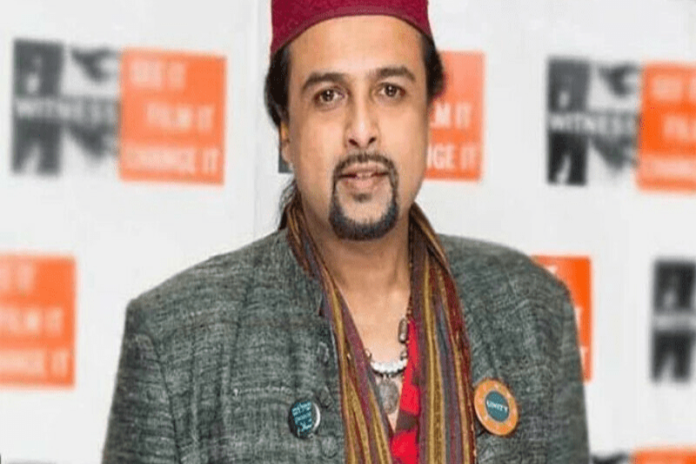Farha and the story of the Palestinian collaborator

- 461
- 0
On December 1, 2022, Netflix released the film Farha, Darin Sallam’s first full-length feature and Jordan’s entry into the Oscars. Like many diaspora Palestinians and our allies, I rushed to watch it, and I loved it.
The film is based on the true story of a Palestinian girl who survived the Nakba of 1948, when hundreds of thousands of Palestinians were expelled from their homeland by Zionist militias. The film’s main character, Farha, is locked for her own safety in a pantry when Zionist forces attack her village, and through the cracks of a door, she witnesses some of the brutal violence of ethnic cleansing that created the Israeli state.
I, myself, am the daughter of Palestinians who fled Jerusalem in 1948, my own mother was 16 at the time, my father a little older.
I believe the reason the film resonated so deeply with me, as with every Palestinian I have talked to about it, is because we were finally seeing, on the screen, one of the stories so many of us had grown up with, passed on through the generations, but otherwise censored by the Western media.
Without a doubt, the most disturbing aspect of the film for me was the scene with the collaborator. I feel compelled to elaborate on his role, as it is probably one of the more complex and least understood aspects of our dispossession.
The collaborator in the film is a Palestinian man who appears in a burlap sack with two holes for his eyes to hide his identity, and who appears to be helping a Zionist militia find Palestinian resistance fighters and weapons. His tip-off, however, leads to the massacre of a Palestinian family hiding in Farha’s home.
The inclusion of the collaborator is obviously a very delicate matter, because of the many possible interpretations and misinterpretations of that character. For example, in response to a Facebook post by Professor Ahlam Muhtaseb, herself director of a documentary about the Nakba, one person stated that “one of the reasons Palestine was taken was because of the spies/traitors in our country”. And, further down, the same person added that “he and many of the traitors are the cause of the occupation/siege of Palestine”.
The collaborator in the film eventually turns out to be Farha’s own uncle, whom she had lovingly looked up to. He is a “modern” urban Palestinian, who wears Western clothes, speaks English, and had encouraged Farha’s father to allow her to get an education in the city.
For some Palestinians looking to cast blame, the “urban elites” are often implied to have sold out the country. This would, of course, deflect from the sense of shame that Palestinians still harbour at their defeat, blaming it on collaborators, native informants, the loss of traditions and patriarchal gender norms, rather than the unmitigated racism and violence of Israeli colonialism.
Dina Omar, a PhD candidate at Yale University who has studied Israeli military tactics, told me that the practice of putting burlap sacks over the heads of Palestinian collaborators and stringing them along on particularly morbid operations was actually common practice for the Israeli militias from the 1910s through to the 1970s.
Zionist militias - and later the Israeli military - paraded the collaborators in a visible way intentionally. The men with burlap sacks on their heads could have been more useful if they were hidden, if they stayed in a jeep close by, or dressed as Zionists.
Instead, they were dragged along and coerced into being part of a military-orchestrated spectacle precisely for people to deflect criticism away from the murderers and onto the collaborators, who were almost always forced into this role in order to protect their loved ones.
Palestine was not lost because of the collaborators. Palestinians were faced with impossible odds because England had ensured successful Zionist colonisation by exiling or imprisoning the Palestinian leadership and executing any Palestinian caught with weapons. At the same time, it facilitated the arming of Zionist paramilitary units, who perpetrated many massacres in their pillaging of more than 530 Palestinian villages.
Today, we can see the ongoing complicity of imperial powers, as they fail to hold Israel accountable for the relentless violence of Zionism, with its continuing home demolitions, land theft, assassinations, executions and carpet bombings of Gaza. And we must understand that these imperial powers, not the Palestinian collaborators, are the reason Palestine is still not yet free.
We must also understand that collaborators today, just as in 1947 and 1948, are most often coerced into this vile role for reasons which would not exist if Israeli forces were not so keen to exploit the most vulnerable, such as those who do not adhere to traditional norms and gender roles, or those who push the limits of social expectations.
Some Palestinians have also been forced to collaborate with Israel under circumstances of crushing poverty, and a genocidal siege, or while seeking to secure lifesaving medical care for their loved ones.
The inclusion of the collaborator in Farha, then, is best read as a nod to this complex phenomenon, and to Israel’s longstanding use of this traumatising tactic. Could we consider instead that Farha’s uncle knew her father had locked her up and was trying to find his way to her, to free her from the pantry?
So, while I absolutely loved the movie, I think - as Chimamanda Adiche argues - there is danger in a single story. If this is the one story of our Nakba that we get from the Palestinian perspective, and it shows a collaborator, then it is easy to generalise and think there was a traitor/collaborator in every village. Indeed, as one Facebook post reads: “Farha is not a character. The movie is not fiction. She is all of us survivors of the ethnic cleansing of the Nakbah in 1948.” But if so, then we all have a collaborator in the family.
To avoid such generalisations, we need more of our experiences out there, to highlight our resistance against the imperial odds. Edward Said denounced the fact that we do not have “permission to narrate”. We must not wait to be given that permission - we have to seize it and use it.
Farha is a harrowing, but credible story - one corroborated by more than half a nation uprooted, weaned on similar stories, that stayed with us and continue to haunt us. We need more such stories, we need all our stories out there. We also need to make sure Farha’s story is not silenced. There has been a major campaign against the film, seeking to smear and deplatform it. So, if you haven’t yet, do make a point of watching the film, and giving it a positive review.
Courtesy: Al Jazeera
Published in The Daily National Courier, January, 10 2023
Like Business on Facebook, follow @DailyNCourier on Twitter to stay informed and join in the conversation.

















































